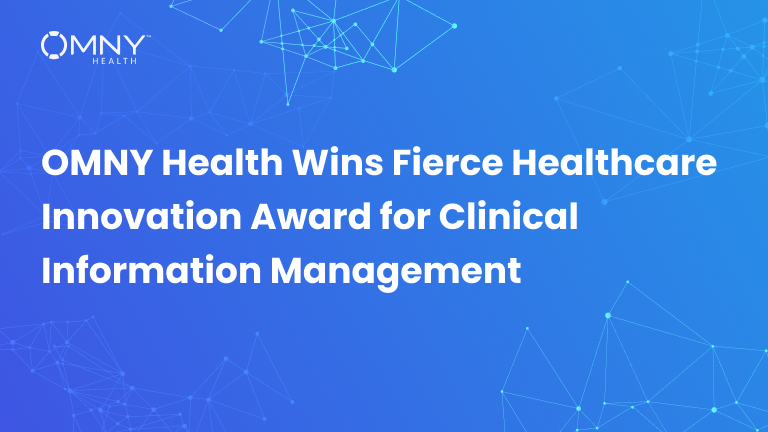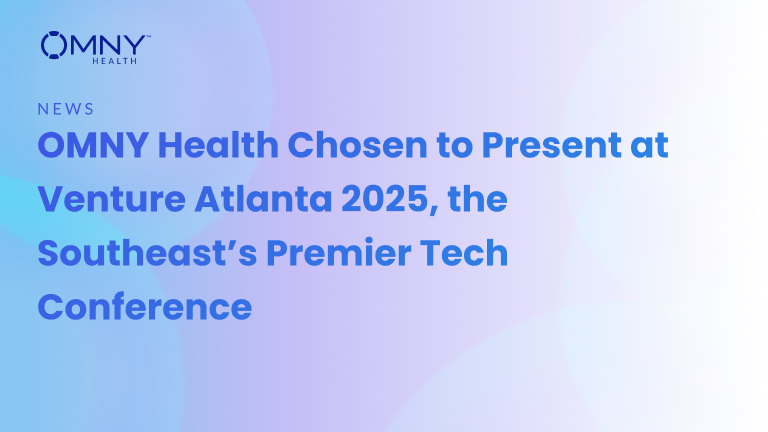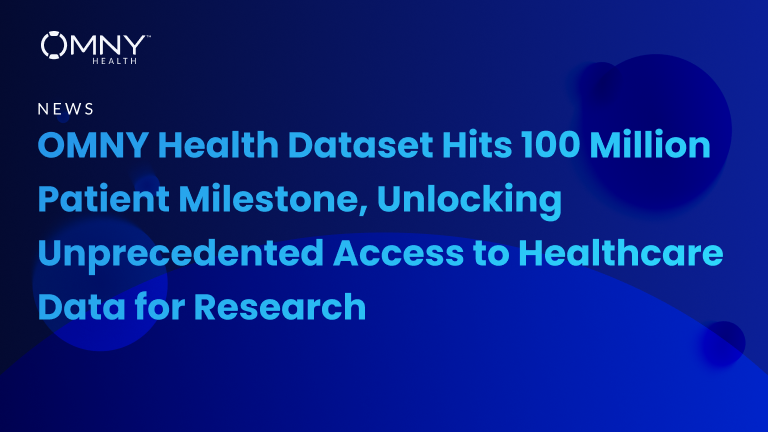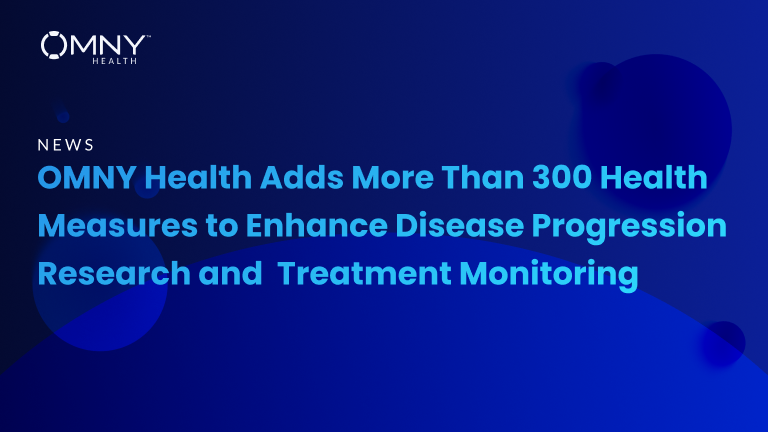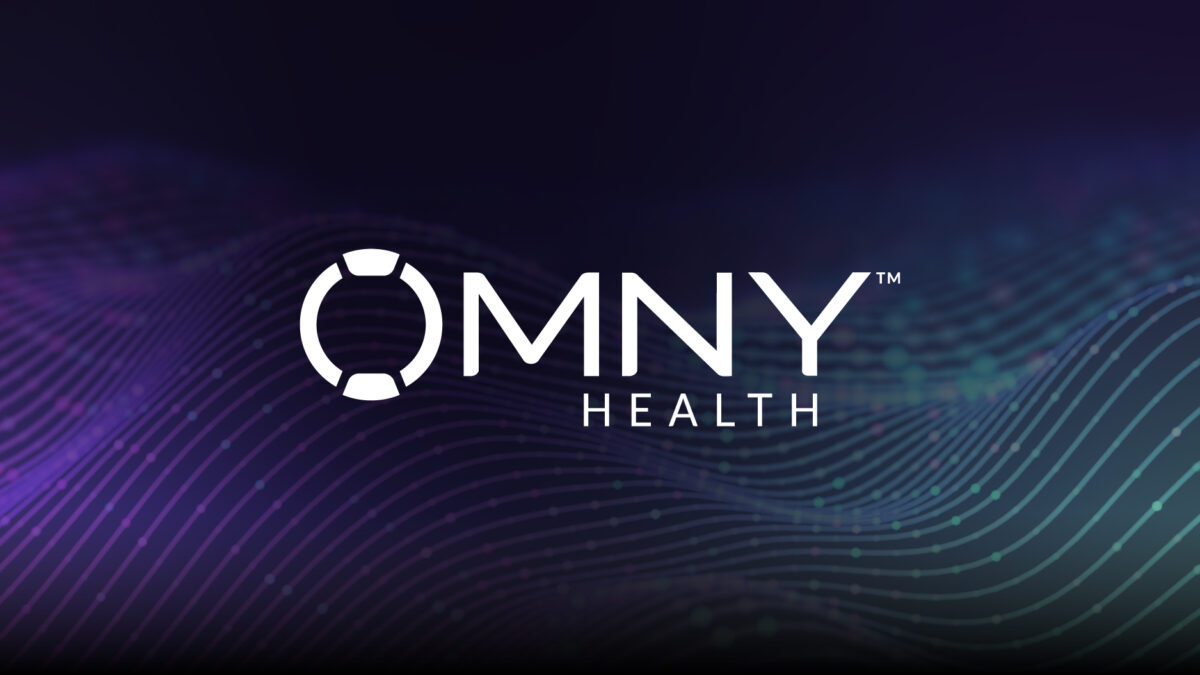We are thrilled to announce that OMNY Health has been named a winner in the prestigious Fierce Healthcare Innovation Awards for our groundbreaking work in Clinical Information Management!
This recognition from Fierce Healthcare, a leading voice at the intersection of healthcare, business, and policy, celebrates the organizations that are driving improvements and truly transforming the industry.
OMNY Health was honored specifically for our innovative work on Unstructured Clinical Notes, demonstrating our unwavering commitment to unlocking the full potential of real-world data to advance research, power AI, and ultimately, improve patient care.
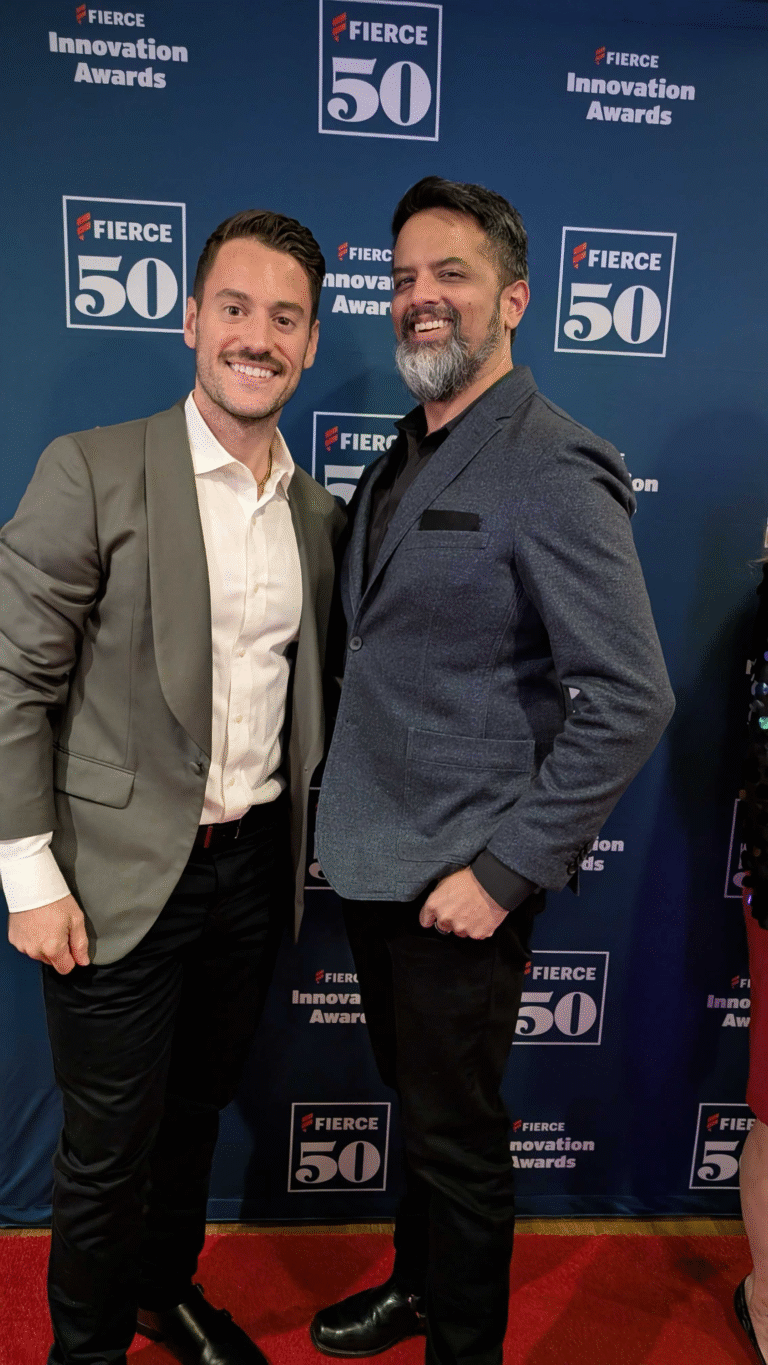
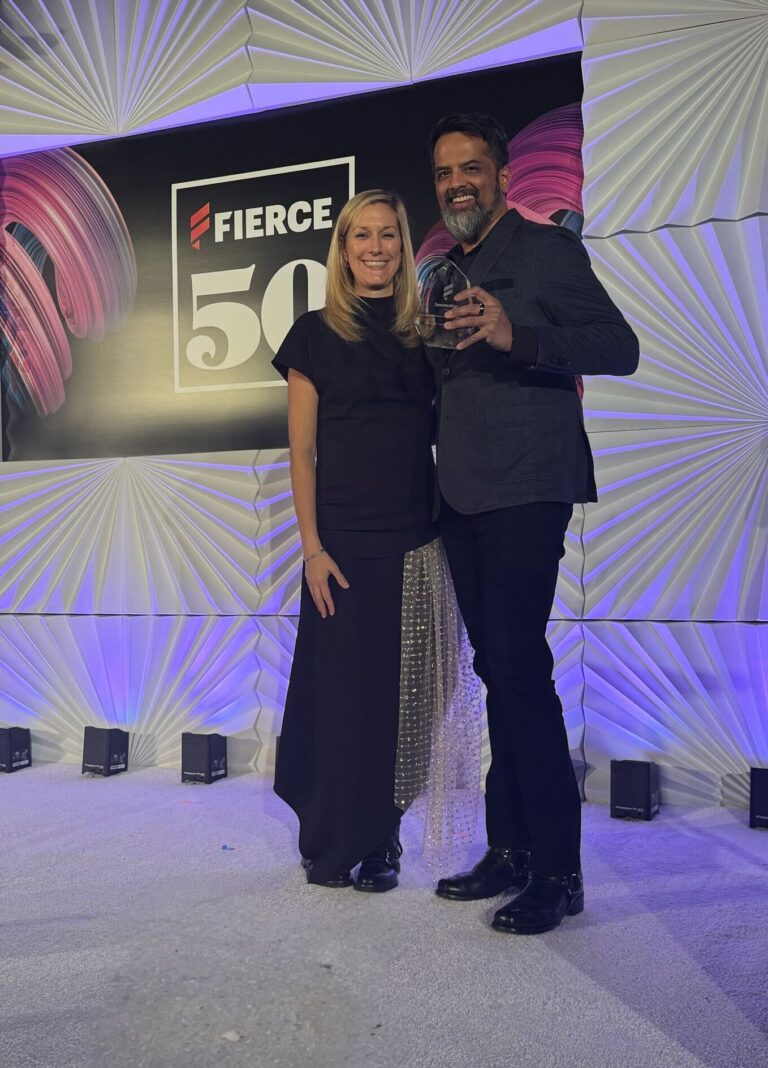
OMNY’s Eric Lavin, SVP Commercial, and Dr. Mitesh Rao, CEO at the Fierce Innovation Awards in New York City
Unlocking the Hidden Context of Care
The majority of critical patient context is often buried within unstructured data inside the Electronic Health Record (EHR). This context includes the nuances of a diagnosis, the challenges of a treatment plan, and the social factors affecting a patient’s journey, such as physician notes, discharge summaries, and clinical reports. This information is notoriously difficult to access, integrate, and utilize at scale.
Our ground-breaking solution tackles this challenge head-on. OMNY Health’s platform transforms billions of these complex, siloed, unstructured clinical notes into high-quality, regulatory-grade, and AI-ready datasets. By linking this deep, contextual information with structured clinical data, we provide a holistic, longitudinal view of the patient experience.
This capability is essential for:
- Fueling Responsible AI: Providing clean, unbiased, and comprehensive datasets to train next-generation clinical and operational AI models.
- Accelerating Research: Giving life sciences and healthcare researchers the necessary context to understand treatment efficacy, patient subpopulations, and complex disease progression.
- Driving Health Equity: Ensuring that data used for research and development is truly representative of the national population, including diverse geographies, ethnicities, and care settings.
A Mission Confirmed
This award is a powerful validation of our democratic approach to healthcare data, which focuses on partnering directly with provider organizations to create a nationally representative “living data layer.”
“To be recognized by Fierce Healthcare for our work in Clinical Information Management is a tremendous honor and underscores the criticality of solving the unstructured data problem,” said Mitesh Rao, M.D., CEO and co-founder of OMNY Health. “The true voice of the patient and the context of their care often reside in those notes. By making this data accessible and usable, we are giving researchers, developers, and health systems the fuel they need to deliver on the promise of precision medicine and responsible AI.”
The Future of Real-World Data
At OMNY Health, we believe that clean, usable, and representative data is the foundation of a better healthcare future. We are proud to stand among the industry’s most innovative companies and remain committed to expanding our platform to help our partners accelerate discovery and improve outcomes for millions of patients across the nation.
Learn more about the awards and our category win on the official Fierce Healthcare Innovation Awards page.
Discover how OMNY Health is transforming real-world data for your organization at omnyhealth.com.
